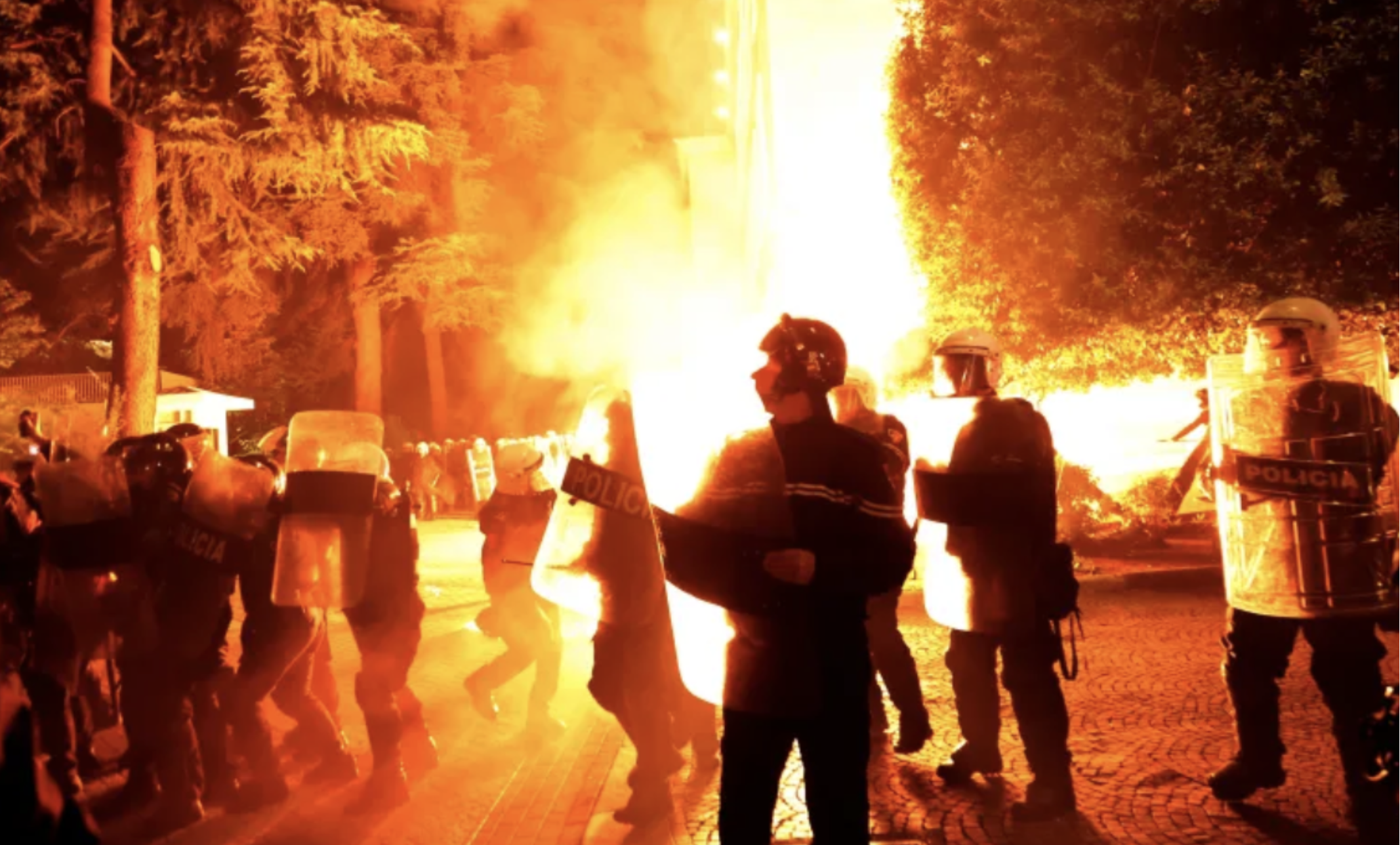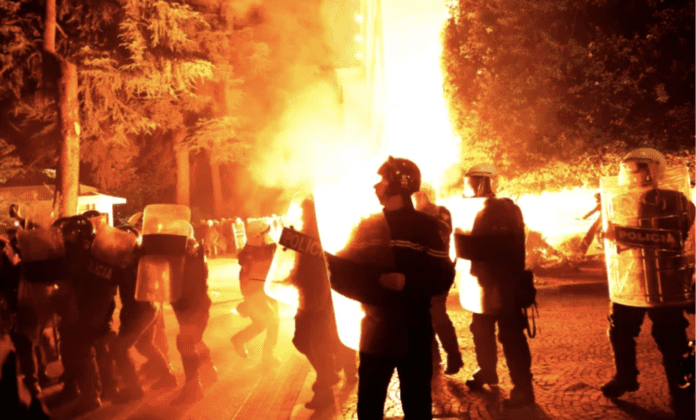Featured Image courtesy of Al Jazeera showing Police and Protesters in Albania’s capital, Tirana, on October 8 2024
For the past week, anti-government protesters in Albania have called upon Prime Minister Edi Rama to resign. On October 7 and 8, there were multiple fires and tear gas deployments against protesters in Tirana in response to their use of petrol bombs against government buildings and city property. Government authorities reveal that 10 officers and three demonstrators were injured.
Why Are They Protesting?
For weeks, political opponents of Rama and his Socialist Party have been accused of corruption, manipulating elections, and undermining the judiciary’s authority. The center of these allegations stem from his administration’s use of Public Private Partnerships (PPP) to fund major infrastructure projects, primarily waste management systems. It is from these projects that the opposition claims that corruption holds root, as public funds meant to be used for the waste management projects were misused for personal profit. High-profile cases, including the bribery convictions of several former government officials linked to incinerator contracts, have fueled these accusations. Most notably, the accusation and arrest of the former minister of Environment in Rama’s government, Lefter Koka, in 2021, first led to sparks of the fire. Koka was accused of taking bribes in connection with contracts awarded for the construction and operation of waste incinerators in several Albanian cities. These contracts were meant to modernize waste management in Albania, but they quickly became controversial due to allegations of inflated costs and mismanagement.
Additionally, Rama’s government has faced criticism for allegedly obstructing efforts to investigate corruption through parliamentary commissions, further deepening mistrust. Opponents have argued that the Socialist Party, which holds a majority in parliament, has blocked attempts to scrutinize the government’s actions, reinforcing the perception of judicial manipulation.
Furthermore, protesters have been demonstrating against the house arrest and detainment of several influential figures of the Democratic Party. Firstly, the house arrest of Sali Berisha, the leader of the opposition Democratic Party on corruption, claims which Berisha insists are politically motivated—has intensified political unrest, leading to protests and clashes in the streets.
An opposition protester waves a flare during an anti-government rally in Tirana, Albania on October 7, 2024. [Hameraldi Agolli/AP Photo, courtesy of Al Jazeera]
On October 8th, the Tirana Police Directorate reported that it had referred three Democratic Party officials—Flamur Noka, Gazmend Bardhi, and Ervin Minarolli—to the Prosecutor’s Office following clashes during an anti-government protest. Legal proceedings were subsequently initiated against Noka, Bardhi, and Minarolli for the criminal offense of “organizing and participating in illegal gatherings and demonstrations,” according to the Police Directorate. However, it remains unclear whether the three officials were present or involved in the protests that night.
What Happened on October 7 & 8?
On the nights of October 7 and 8, over 1,000 police officers were stationed throughout Tirana as thousands of opposition supporters marched between various buildings, throwing petrol bombs, rocks, and other projectiles, as evidenced by the video footage from the scene. Demonstrators vandalized city property, smashed billboards, and set fire to garbage containers during their marches. There were reports of key government buildings that were damaged during the recent protests; for instance, protesters clashed with police near the Prime Minister’s office and the headquarters of the Socialist Party, where they hurled petrol bombs and set fire to a poster of Prime Minister Edi Rama.
With their scorching demonstrations, protesters are seeking to call for the establishment of a technocratic caretaker government to oversee the country until next year’s parliamentary elections. This demand has resulted in increased security measures throughout Tirana, as authorities will and have faced additional demonstrations since the first wave of protests.The United States embassy and European Union delegation to Albania both condemned the violence in Albania with the US embassy stating it was “deeply concerned by the destruction and force on display in Albania’s parliament on Monday. Such damaging and potentially injurious actions have no place in the democratic process.”











